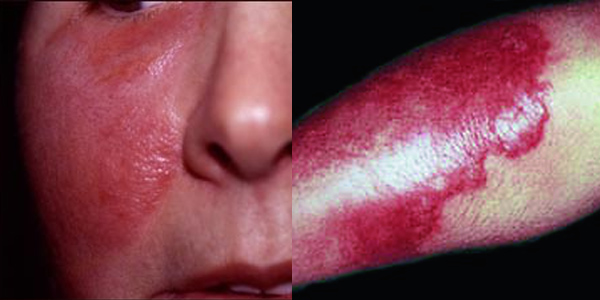Erysipelas
Generalities:
Erysipelas is a dermatological disease clinically characterized by raised, bright red plaque-like lesions with well-defined borders. There are also blistering forms of this disorder. The infection also usually affects the nodes of the lymphatic system. May present with high fever, chills, and malaise.
Erysipelas can occur anywhere on the body, most often on the face or legs. It can be recurrent and cause chronic lymphedema. Complications of erysipelas typically include thrombophlebitis, abscesses, and gangrene.

Causing agents:
The infection is mainly caused by bacteria, including streptococcus pyogenes, beta-hemolytic streptococcus . Although other bacteria can also be involved, such as. staphylococcus aureus, klebsiella pn., haemophylus influenzae, E.-coli, among others. Therefore, we recommend carrying out a complete test of all pairs.
Treatment:
Pair
affected area - kidney

Carry out a complete test to rule out other pathogens such as herpes, fungi, etc. The pair affected area - kidney can serve to reduce discomfort (burning, pain), in addition to impacting the pairs detected in the test. If the infection does not subside in the first days of treatment, visit your doctor for the administration of antibiotics.
Leer texto:
Leer pares:

